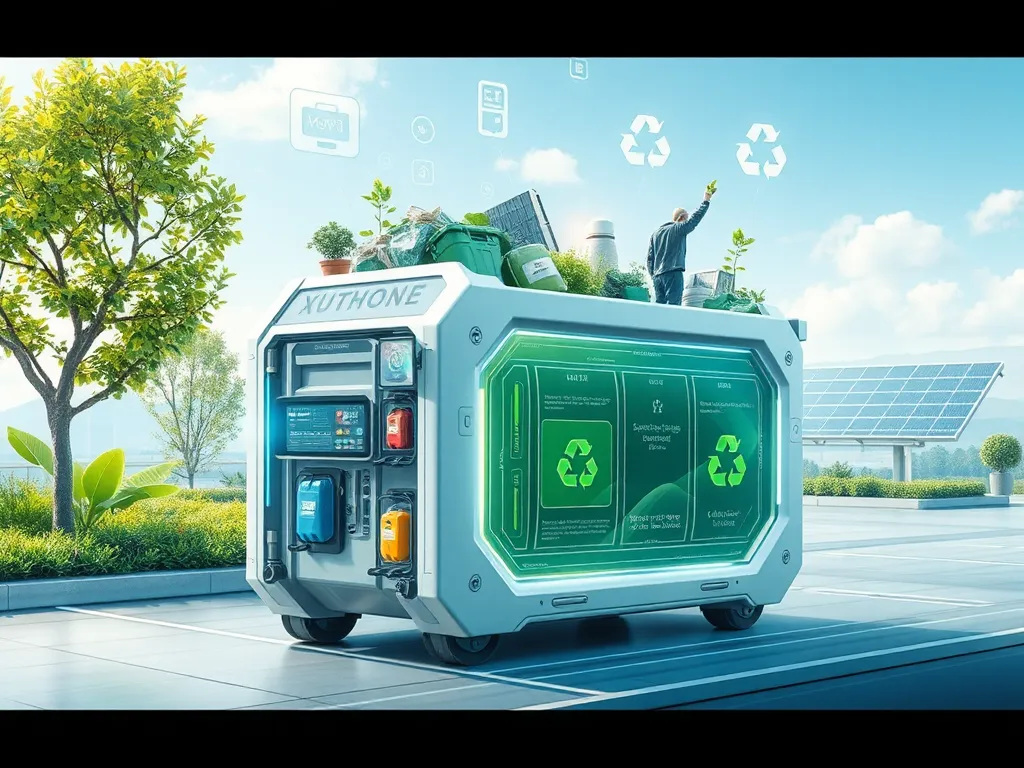Cutting-Edge Innovations in Dumpster Rental & Waste Removal

Innovations in Dumpster Rental and Waste Removal Technology
The landscape of waste management is evolving rapidly, driven by innovations in dumpster rental and waste removal technology. These changes are crucial for creating more efficient, eco-friendly, and user-friendly solutions to tackle the global waste crisis. Companies are increasingly adopting advanced technologies to streamline processes and improve service delivery, leading to sustainable urban environments and enhanced customer experiences.
One of the most significant breakthroughs in dumpster rental and waste removal technology has been the integration of smart solutions. With the help of Internet of Things (IoT) devices, dumpsters are now equipped with sensors that monitor fill levels, optimizing collection schedules and reducing unnecessary pickups. This innovation not only conserves fuel but also minimizes the carbon footprint associated with waste collection.
Moreover, the rise of mobile applications has transformed the dumpster rental experience for consumers. These apps enable users to book rentals, track pickup timings, and even manage payments seamlessly. Enhanced user experiences are fostering greater usage and encouraging responsible waste disposal practices, as customers are more informed and engaged in the process.
In addition to smart technologies, eco-friendly waste removal options have gained momentum. This includes the introduction of biodegradable and recyclable dumpster solutions, encouraging businesses and households alike to adopt more sustainable waste disposal methods. These innovations not only lessen environmental impact but also promote a circular economy, where waste materials are reintegrated into production cycles.
For sustainable waste management solutions in Toronto, consider the eco-friendly dumpster rentals provided by NCF Canada.
Finally, the utilization of data analytics in waste management is redefining how companies approach efficiency and waste reduction. By analyzing data from dumpster usage patterns, waste management companies can optimize their routes and operations, ensuring a reduction in operational costs and waste generation. This data-driven approach is paving the way for smarter waste management solutions in urban areas.
Smart Dumpster Solutions
IoT technology is revolutionizing waste management with the advent of smart dumpsters. These advanced solutions include built-in sensors and connectivity features that allow real-time data collection on the fill levels of dumpsters. By integrating such IoT solutions, waste management companies can efficiently manage their fleets and ensure timely pickups while avoiding overflows and unnecessary trips.
The benefits of smart dumpster monitoring are manifold. Not only do they improve the efficiency of waste collection, but they also significantly reduce operational costs by optimizing route planning. Additionally, putting this technology into practice encourages responsible waste disposal behavior among users as they become aware of the fill levels and collection schedules.
Several cities around the world have embraced smart dumpster technologies to great effect. For instance, cities like San Francisco and Amsterdam have implemented smart bins that communicate with waste collection teams, reducing pick-up frequency while maintaining cleanliness. These success stories illustrate how technology can effectively address urban waste management challenges.
Eco-Friendly Waste Removal Technologies
The emphasis on sustainability has brought about innovative biodegradable and recyclable dumpster options. These dumpsters are designed to hold waste while minimizing harmful environmental impacts. Various materials are used to construct these dumpsters, ensuring that they can be decomposed or recycled after their useful life.
Innovative composting methods have also emerged, helping to reduce the organic waste sent to landfills. By integrating composting solutions with waste collection services, many cities are encouraging residents to separate their organic materials, leading to higher compost yields and decreased landfill volumes.
Urban areas are increasingly adopting sustainable disposal practices that involve advanced waste separation systems and educational initiatives. This involves community engagement, where residents are informed about the benefits of recycling and composting, contributing to a greener society.
Mobile Apps for Dumpster Rental
Mobile applications are at the forefront of transforming the dumpster rental landscape. They offer a streamlined rental process, allowing customers to request dumpsters, schedule pickups, and make payments all from their smartphones. This convenience significantly enhances customer experience, making waste management easier and more accessible.
User-friendly features of these dumpster rental apps include notifications for pickup schedules and fill level alerts, as well as customer support through instant messaging. Such features empower consumers by providing them with control over their waste management.
The impact of technology on customer service in waste management is profound. With efficient communication and problem-solving channels, customers can have their queries resolved in real-time, leading to higher satisfaction levels and increased loyalty in an otherwise traditional industry.
Automated Waste Collection Systems
The advent of robotics in waste collection renders traditional manual methods obsolete. Automated waste collection systems utilize robotic arms and sorting mechanisms to handle waste, ensuring efficient and safe operations. These systems are able to work effectively in challenging urban environments, reducing labor costs and increasing accuracy in waste sorting.
Automated waste collection systems involve numerous advantages over manual collection, including reduced human exposure to hazardous waste and enhanced operational efficiency. By minimizing costs associated with labor and training, waste management companies can allocate resources more effectively.
Looking towards the future, emerging technologies like AI and machine learning will likely drive the evolution of automated waste management systems, incorporating more sophisticated sorting mechanisms and energy-efficient solutions to achieve higher sustainability targets.
Data Analytics in Waste Management
Data analytics plays a critical role in optimizing waste management processes. By leveraging advanced algorithms, waste management companies can analyze patterns and trends in waste generation and collection. This allows them to customize their services based on the unique needs of different neighborhoods or sectors.
Moreover, the impact of analytics extends to waste reduction strategies, as businesses can better understand their waste outputs and implement targeted initiatives for minimizing waste generation. This proactive approach not only contributes to sustainability but also enhances a company's public image.
Predictive modeling is another significant application of data analytics in waste management. By forecasting future waste generation trends, companies can adjust their strategies to ensure efficiency and effectiveness in operations. This data-driven foresight is vital for building sustainable waste management systems in growing urban areas.
